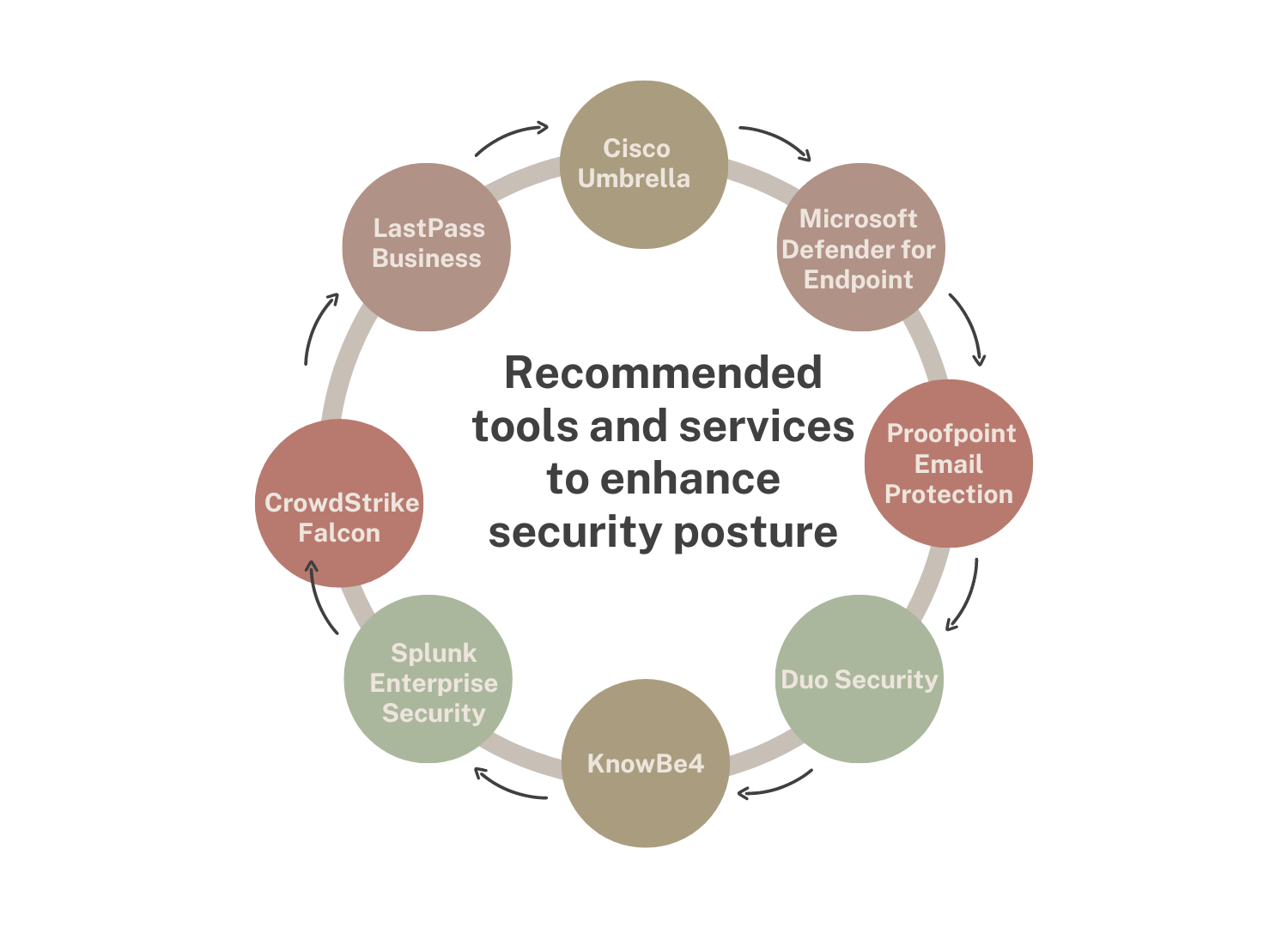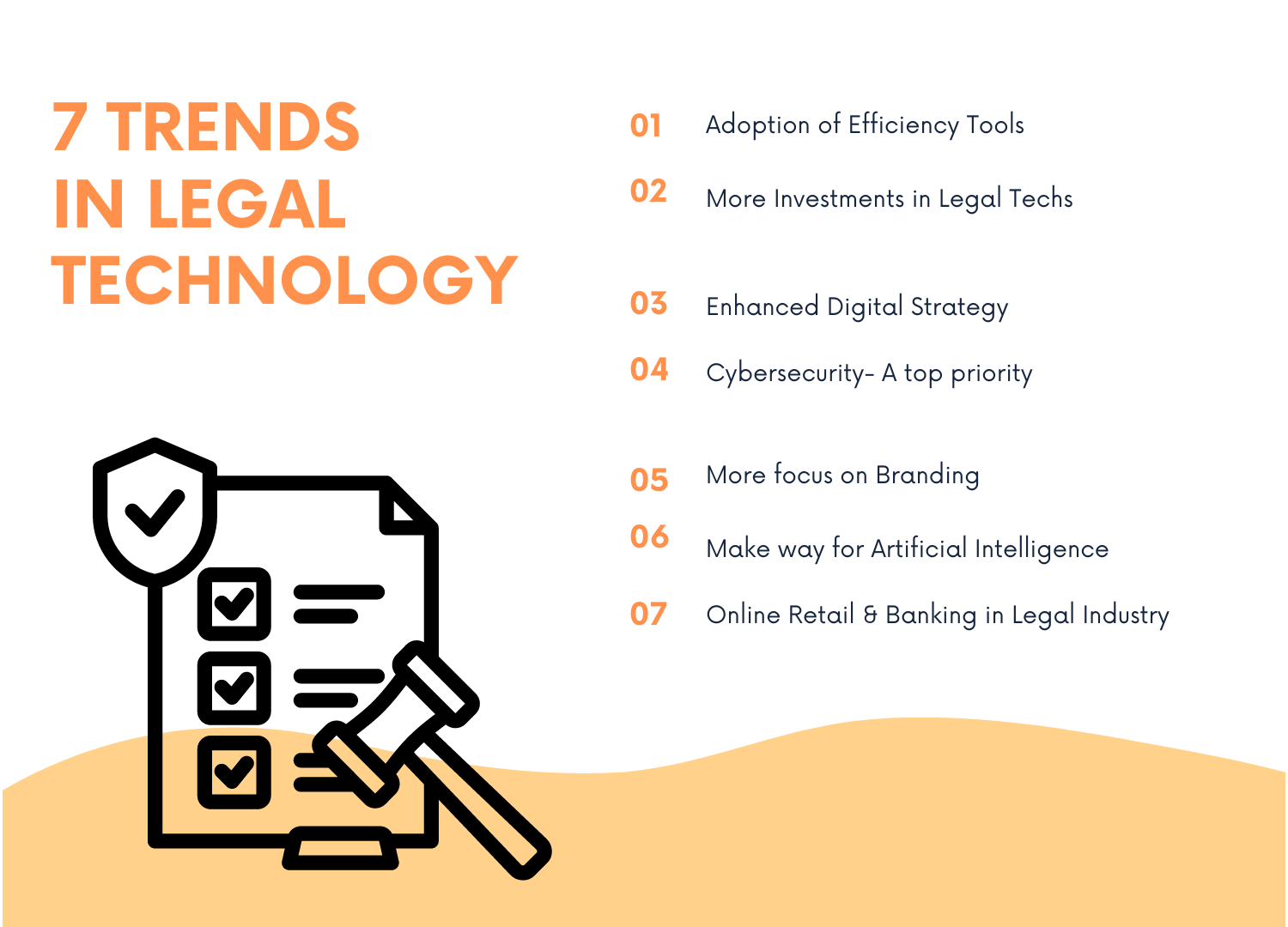Table of Contents
Cybersecurity measures are the new requirements in legal data protection as cyber-attacks now feature as the sixth largest risk. Statistics on cybersecurity indicate that there are 2,200 cyber-attacks every day, which means, on average, one every 39 seconds according to Astra. A data breach in the United States costs about $9.44 million, while by 2025, cybercrime will be estimated to have cost the global economy USD 9.5 trillion. According to the PwC 2025 Global Digital Trust Insights, in just one year, the percentage of companies that have had a data breach worth more than $1 million increased from 27 percent to 36 percent. Added to this, the detection rate—or what one may call the prosecution rate—stood as low as 0.05 percent in the US, according to the World Economic Forum’s 2020 Global Risk Report.
Cybersecurity in law firms needs to be significantly strengthened. Especially their security systems because they handle sensitive customer data on several levels. To guarantee the security of customer information and confidentiality, businesses need to update their security frameworks and establish strict security procedures. This article will cover a wide range of cybersecurity in law firms, such as technology rules, the significance of technical proficiency, and security breaches and their defenses.
Accelerate Legal Research With Our Technology Solutions
Current Cyberthreats and Breach Incidents in the Law Industry
The cyber risks and breaches within the legal sector have risen incredibly, pointing to a worrying trend that calls for even greater security measures. Data protection in law firms is critical as they have very important and sensitive information belonging to their clients. Law firms have been the target of cyberattacks within the past years. These have included ransomware attacks. Wherein critical files are encrypted and hefty ransoms are demanded in return for the key to decrypt them. Spear-phishing attacks in an effort to dupe employees into giving away sensitive information.
Case Study:
One well-known case was that of a large American law firm that fell victim to a ransomware attack, which caused large periods of downtime and leaked client data. The loss of trust in the firm and reputation that came about was far from the financial damage alone. Poor email security practices left confidential information and privileged communications exposed. These hacks do not stand alone; rather, they indicate a pattern that exploits vulnerabilities unique to the legal sector: untrained staff, archaic security software, and no proper incident response. The growing list of such incidents serves to remind one acutely of the critical requirement of robust data protection laws to fight back and reduce the impact of any such attacks.
As part of the reviewing process of security procedures that have been underway as these incidents come to light, law firms are now being compelled to introduce and implement more rigorous data protection measures. It has become very evident that a law firm can be easily exploited with the evolving strategies of hackers if it does not implement the latest security processes and keep them updated. This section will set out the background for understanding the different kinds of cyberthreats normally launched against law businesses and the specific vulnerabilities that make the legal industry such an attractive platform for cyberattacks.
Typical Cyber Threats Aimed at Legal Firms
2025 will bring a wide range of cyberthreats to the legal services industry, all aimed at taking advantage of certain vulnerabilities. Phishing is still one of the most common threats, through which offenders pretend to be from trusted institutions in order to collect the information they target. Very often, this is carried out by using complicated social engineering techniques that trick employees into opening infected attachments or clicking harmful links.
A more serious form of legal cybersecurity threat is ransomware that locks out organizations from their systems and then demands that a ransom is paid in order for the system to be unlocked. If the payment is not paid, the operation is brought to an end, and there is a risk that vital data can leak out. Another huge danger is data breaches: illegal access to company information, which can cause huge financial harm and harm the reputation of a company.
Particular Weaknesses in the Legal Sector
Due to its unique weaknesses, the legal business is especially vulnerable to cyberattacks. Many legal organizations continue to use antiquated systems with weak security safeguards, making them simple pickings for cybercriminals. In addition, law practices are desirable targets due to the high value of the information they hold, which includes personal client information and trade secrets. These weaknesses are made worse by the industry’s frequently sluggish adoption of contemporary legal cybersecurity techniques like multi-factor authentication and encryption. Effective data security is further complicated by the dynamic nature of legal practice, which requires various parties to access sensitive information often.
A challenging problem is presented by the mix of valuable data and occasionally lagging security measures. Cybersecurity in legal firms allows to successfully establish strong security measures, they must be aware of these dangers and vulnerabilities. With the goal of strengthening the legal industry against both current and future cyberthreats, the upcoming sections will examine best practices for developing cybersecurity best practices and policies as well as how technical advancements can be used to improve security measures.

Best Practices for Cybersecurity in Law Firms
Creating Sturdy Security Procedures and Policies
Developing and implementing strong cyber security laws and regulations is essential. Especially for law firms to guard against cyberattacks. In order to reduce internal threats, these policies should explicitly outline access rights to sensitive data, guaranteeing that only individuals with the proper authorization can access vital information. Adopting strict password restrictions, updating software frequently, and encrypting data securely are crucial steps. Furthermore, by implementing endpoint protected legal technology solutions, any devices linked to the company’s network can be protected from malware infections and illegal access.
The Value of Frequent Security Audits and Assessments
Cybersecurity in law firms defense plans must include regular security audits and assessments. These evaluations must be thorough, addressing every facet of the company’s IT infrastructure, from employee access controls and third-party vendor risks to network and data security. Audits assist in locating weaknesses that might not be noticeable in regular business operations, enabling organizations to take proactive measures to fix them before hackers take advantage of them. Audits ensure that security measures continue to be successful over time by promoting a culture of continual improvement and adaptation to new cyber threats.
These legal technology solutions safeguards are augmented by frequent security training sessions, which arm each member of the team with the type of information and resources any employee needs in effectively detecting and mitigating cyber threats. Only in adopting a holistic approach to cybersecurity and law can the company be assured in securing its physical and digital assets.
Comprehensive Staff Training and Awareness
Thorough staff training, regular assessments, and robust security policies are essential for law firms to combat evolving cyber threats. This promise upholds client confidence, conforms with legal requirements for data protection and privacy, and safeguards the firm’s sensitive data. The following sections will go deeper into legal tech solutions and compliance duties, but it will become increasingly evident how critical these fundamental procedures are to protecting law firms from cyber dangers.
Future Proof Your Law Firm With Our AI Powered Solutions
Technological Approaches to Strengthen Security
Suggested Cybersecurity Software and Tools for Law Firms
Law firms and cybersecurity must incorporate a portfolio of cutting-edge tools and software created especially to combat the particular risks they encounter in order to improve their cybersecurity posture. Firewalls, anti-malware software, and intrusion detection systems are key technical defenses.
Secure cloud storage options can also give data safe havens while guaranteeing that it is only accessed by authorized users. Ensuring complete endpoint security can enhance the security of all devices linked to the company’s network, including mobile phones and desktop computers.
Using Artificial Intelligence and Machine Learning in Advanced Security Measures
The integration of AI & ML technology represents a major breakthrough in data protection tactics. Artificial intelligence (AI)-powered cybersecurity are able to analyze enormous volumes of data at a rate of speed never seen before, seeing trends that might point to a possible threat before it gets serious. With continual data input, machine learning algorithms improve with time, becoming more adept at identifying novel and developing dangers. For legal businesses, this means improved anticipatory skills and quicker reaction times, which substantially narrows the window of opportunity for cybercriminals.
These legal tech solutions simplify cybersecurity task management and protect sensitive data, freeing up legal companies to concentrate more on their primary legal duties. Law firms need to be cautious during the integration process as they continue to embrace these cutting-edge technologies. New tools must integrate with existing systems and staff must be trained. By combining advanced technology with robust security standards, law firms can create a comprehensive cybersecurity framework for current and future threats.
Legal Requirements and Adherence
An overview of the laws governing cyber security in law firms
Strict legal requirements that protect sensitive client data require law firms to implement strong cyber security procedures. These rules are intended, in many countries, to guarantee that lawyers protect the integrity and confidentiality of their client information. Specific legal and ethical issues in cybersecurity, which might differ greatly between jurisdictions. But often including guidelines on data protection, privacy regulations, and incident reporting, increase this obligation. Law firms and cybersecurity need to maintain their legal obligations to their clients and to keep out of trouble with the law. For this the law firms need to be aware of these responsibilities.
GDPR, HIPAA, and Other Related Laws’ Effects on Legal Firms in 2025
Major regulatory agencies remain the driving force. Especially with regard to Cybersecurity in law firms in 2025. Examples include the European Union’s General Data Protection Regulation. And that of the United States, HIPAA. GDPR places strict requirements on data protection and privacy. These include law firms that ensure that personal data is going securely through the necessary organizational and technical safeguards. Similarly, HIPAA also extends to legal firms that deal with litigation concerning healthcare-related issues and enforces the provision of protection of the protected health information of the patients. Violations against these provisions are penalized severely, including heavy fines and loss of reputation for the company.
Law firms should put in place compliance systems that periodically evaluate and cybersecurity in law firms should be modified in response to new rules in order to manage these legal complications. This includes creating training curricula specifically designed to inform all employees about the most recent cyber security laws and regulations and how crucial compliance is. Law firms can maintain compliance with applicable laws and protect their clients’ interests while also defending themselves against cyber threats by incorporating legal obligations into their cyber security strategy. This helps them maintain their reputation as dependable and trustworthy guardians of client information.
Training and Information for Law Firm Employees Creating a Cybersecurity Awareness Training Program
It is essential for legal firms to develop a thorough data protection in law firms awareness training program. These courses ought to address the fundamentals of cyber security, particular hazards facing the legal industry, and the most effective ways to reduce those risks. All staff members should receive regular training to stay current on the newest defensive strategies and cyberthreats. These training sessions must cover real-world issues that employees may encounter, such spotting phishing emails and handling private data securely.
The Significance of Ongoing Education in Averting Cyberattacks
Reiterating training is essential to bolstering cybersecurity in legal firms. Programs for awareness and training should adapt to the changing nature of cyber dangers. Employees will act in a security-conscious manner without thinking twice thanks to this continuous training that fosters a culture of cybersecurity for lawyers throughout the company. Moreover, initiatives for continuous learning can be modified to incorporate new technologies, policies, and practices that result from modifications to regulations or shifts in the cyber security environment.
Providing employees with the skills they need; effective training and ongoing education to create a culture in which team members actively participate in the company’s cyber defense plan. This kind of group awareness is crucial to stopping cyberattacks. Lessening the damage in the event that a breach does happen. Cybersecurity boosts law firm defenses and equips staff for the digital legal world through robust training.
Planning for Incident Response
Developing and Putting into Practice a Successful Incident Response Strategy
Having a strong incident response plan is not only advantageous for legal cybersecurity, but it is essential.
Incident response plans should detail steps for identifying, notifying, and handling security incidents to minimize damage and accelerate recovery. The plan should define containment, eradication, recovery procedures, and team roles. In order to make sure that IRPs hold up in the event of a real cyberattack, law firms must test and upgrade them frequently. By taking a proactive stance, cybersecurity in law firms may react to breaches more quickly and effectively, lessening their damage.
Coordination and Communication During a Security Breach
Managing the situation successfully during a security breach depends on efficient coordination and communication. Cybersecurity in law firms covers the incident response team’s internal communications as well as exterior interactions with clients, authorities, and maybe the media. To prevent misinformation and uphold confidence, legal businesses must make sure that all communication is controlled and unambiguous. Using standardized templates can streamline communications, ensuring all parties are informed without compromising the investigation or legal obligations.
The creation and ongoing improvement of an incident response plan are crucial elements of a complete cybersecurity in law firms. Law companies that plan ahead can skillfully respond to incidents and show clients and authorities their commitment to securing sensitive data. This preparedness is crucial for maintaining client trust. And upholding the firm’s reputation in the face of ever-evolving cyber threats.
Upcoming Trends in Cybersecurity for Law Firms
New Cyber Threats and Technological Advancement Predictions
Cybersecurity in law firms will continue to advance. And so will sophisticated cyber threats. Predictive analytics and machine learning will play an ever-increasingly critical role. Especially in identifying potential vulnerabilities and pre-empting attacks before they actually occur. Deep learning analyzes past breaches to predict future threats and enable proactive defenses. Apart from that, the rise of IoT applications in offices would equally bring in lots of risks that a law firm has to grapple with .
Preparedness for Future Challenges Envisaged in Cyber Security
To fight off such challenges, law companies need to invest in state-of-the-art technology and continually update policies and cybersecurity best practices. This requires more than new tools; it demands up-to-date policies and practices to counter evolving threats and governance standards. Such advanced new innovations in blockchain, which removes all the risks of tampering in transactions and smart contracts, pose as useful tools for creating high integrity and confidentiality. Deeper AI integration necessitates robust AI security to prevent manipulation and ensure ethical use.
It is going to be important for law firms to keep an eye on such trends. They shall continue ensuring that the most stringent measures of legal cybersecurity are in place. Especially if they want to safeguard themselves and their clients. This will keep their trust intact in a digital future.
Top cybersecurity protections for legal businesses
Cybersecurity in law firms can use a variety of security defenses to shield their systems and data from the aforementioned cybersecurity breaches, such as the following:
- Firewalls monitor and control the incoming and outgoing traffic. As per predefined sets of rules for security.
- Antivirus software is useful for detecting, blocking, and removing malware. In case it is malicious software—from the computers and networks of the law firm. These include viruses, worms, and Trojan horses.
- With the use of virtual private networks, the remote users are securely connected to the law firm’s network and internet data is encrypted.
- By forcing users to provide several kinds of authentication before a law firm’s systems or data are accessed, MFA enhances security.
- Data encryption is the method by which information is secured during its transfer between networks and during its storage.
- Endpoint security solutions to guard individual devices against malware, illegal access, and other security risks, including laptops, desktops, and mobile devices
- Real-time threat detection, incident response, and forensic investigation are possible by Security Information and Event Management (SIEM).
- Security patch management to fix known vulnerabilities and lower the possibility that hackers may take advantage of them
To inform staff members about cybersecurity best practices, phishing rules, data policies, and procedures, regularly conduct employee training and awareness initiatives.
Strong technology policies are essential for legal companies.
The main cybersecurity in law firms are well-defined and documented regulations around technology use and security. These regulations offer a structure for handling risks associated with technology. They show the legal firm’s dedication to client information protection, establish appropriate standards, and train staff.
Law firms may reduce risks, safeguard sensitive client information, guarantee regulatory compliance, direct staff behavior, raise awareness, create accountability, uphold client trust, and expedite incident response with the support of clear and recorded policies on technology use and security. The ensuing are instances of legal technology solutions protocols that can protect law firms against cyberattacks:
- Policy on data encryption
- Policy on Acceptable Use
- Policy for managing passwords
- Policy for remote access
- Email security guidelines
- BYOD (bring your own device) guidelines
- Plan for responding to incidents
- Policy for software updates
- Policy for access control
- Social media guidelines
Communication, application, and enforcement of these strong technology rules must be given equal weight. Enforcing the rules and effectively communicating them will ensure smooth operations and informed employees. Cybersecurity legal services will involve making adjustments to procedures, software setups, and training sessions. The third pillar is the enforcement of the policies, which guarantees adherence and deals with infractions.
Conclusion
Cyber threats are becoming even more sophisticated and frequent in 2025. Thus, legal firms should take measures for the prevention of cybersecurity threats. This insists on strong cyber defenses: from an understanding of the varying kinds of cyber threats, as seen throughout this text, to enable cutting-edge technical solutions and dealing with legal and ethical issues in cybersecurity. In today’s rapidly evolving digital landscape, law firms must continually adapt their strategies to protect their reputation, comply with legal requirements, and safeguard clients’ sensitive information.
Considering the issues outlined above, the data protection strategies in law firms have to be regularly assessed and updated. In addition to strengthening their defenses, the law firms should attempt to instill a culture of security awareness and preparedness amongst all its staff and employees. With A3Logics holistic strategy, various layers of an organization prepare for sufficient defenses to protect against impending cyber threats.
FAQ
1: Which of the following cyber threats have law firms been experiencing recently most commonly?
The most common cyber threats to a law firm are ransomware. They encrypt the company’s data and requiring the business to pay for its release. Phishing attacks, where hackers pose as trusted sources to solicit sensitive information. Finally, data breaches happens with the accessing of private information without permission.
2. How often should legal firms perform audits and security assessments?
Regular security audits based on data sensitivity and evolving threats. Conduct assessments after a security breach or in case of key changes within the IT infrastructure.
-
What are the specific data protection regulations relevant for law firms?
Regulations concerning law firms are different in different jurisdictions. They depend on the type of activity carried out. This includes, among others, the Health Insurance Portability and Accountability Act. This sets the rules for protecting sensitive patient information in the United States. The General Data Protection Regulation in the European Union, under which the principles of data protection and freedoms are. Also, there are rules which are localized to an area and businesses must take cognizance of this.
-
How does a legal firm get ready for new types of cyber-attacks?
Law firms can better handle future cyberattacks by investing in advanced technology, staying updated on threats, and providing comprehensive employee training.








